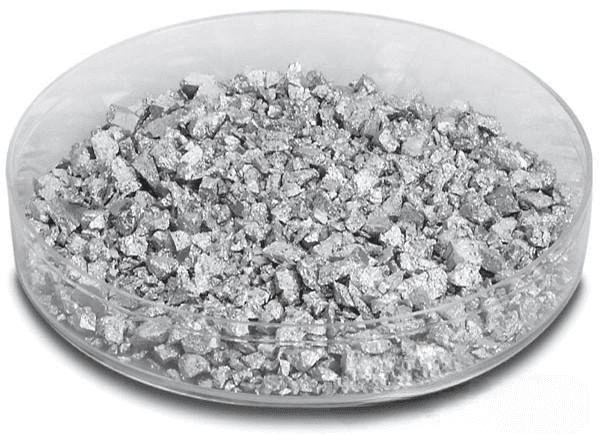Menu
MetalsTek Engineering is a leading supplier of high-quality Bismuth Evaporation Materials that are tailored to meet the precise needs of various industries. Their commitment to innovation and customer satisfaction has made them a trusted partner in the semiconductor manufacturing and optoelectronics industries, helping to shape the future of thin film deposition technologies.

Material: Bismuth, Bi
Purity: 99.9%~99.999%
Properties: 9.78g/cc Density, 271.5°C M.P., 7.97 W/(m⋅K) Thermal Conductivity
Form: Pieces, Granules, Powder, Customized Shapes
Size: 1~6mm, or Tailored Size

Material: Bismuth Oxide
Purity: 99.9%~99.99%
Form: Pellets, Granules, Powder, Customized Shapes
Size: 1~6mm, or Tailored Size

Material: Bismuth(III) Sulfide
Purity: 99.9%~99.99%
Properties: Brown Solid, 6.78g/cc Density, 850°C M.P.
Form: Pellets, Granules, Powder, Customized Shapes
Size: 1~6mm, or Tailored Size

Material: Bismuth Telluride
Purity: 99.9%~99.999%
Properties: Grey Solid, 7.74g/cc Density, 580°C M.P.
Form: Pieces, Granules, Powder, Customized Shapes
Size: 1~6mm, or Tailored Size
Bismuth Evaporation Materials are crucial components used in physical vapor deposition (PVD) techniques, specifically in thin-film deposition processes such as thermal evaporation and electron beam evaporation. Bismuth, a post-transition metal with the atomic number 83, possesses unique properties that make it valuable for a range of applications across various industries. Bismuth Evaporation Materials are typically produced with high purity levels, ensuring the quality and integrity of the deposited thin films. These materials are used in various technological fields, including semiconductor manufacturing, optoelectronics, and research applications. Bismuth thin films have desirable properties such as high electrical resistance, low thermal conductivity, and excellent diamagnetic and superconducting properties at low temperatures. Additionally, bismuth-based compounds and alloys have applications in thermoelectric materials, pharmaceuticals, and cosmetics. The versatility and performance of Bismuth Evaporation Materials make them indispensable for the deposition of thin films with precise thickness, uniformity, and composition, contributing to advancements in materials science and technology.
Phase At STP | Solid | Thermal Conductivity | 7.97 W/(m⋅K) |
Melting Point | 544.7 K (271.5°C/520.7 °F) | Electrical Resistivity | 1.29 µΩ⋅m (20 °C) |
Boiling Point | 1,837 K (1,564°C/2,847°F) | Magnetic Ordering | Diamagnetic |
Density (Near R.T.) | 9.78 g/cm3 | Young’s modulus | 32 GPa |
Appearance | Lustrous brownish silver | Shear Modulus | 12 GPa |
Heat Of Fusion | 11.30 kJ/mol | Bulk Modulus | 31 GPa |
Heat Of Vaporization | 179 kJ/mol | Mohs Hardness | 2.25 |
Molar Heat Capacity | 25.52 J/(mol·K) | Brinell Hardness | 70–95 MPa |
Thermal Expansion | 13.4 µm/(m⋅K) (at 25 °C) | Cas Number | 7440-69-9 |
Bismuth Evaporation Materials play a crucial role in various industries and processes, offering a wide range of applications:
These versatile applications highlight the importance of Bismuth Evaporation Materials in various technological advancements across industries like semiconductors, solar energy, optics, electronics, and thin film transistor fabrication
Our Bismuth Evaporation Materials are clearly labeled externally to ensure efficient identification and quality control. We take great care to prevent any damage during storage or transportation.